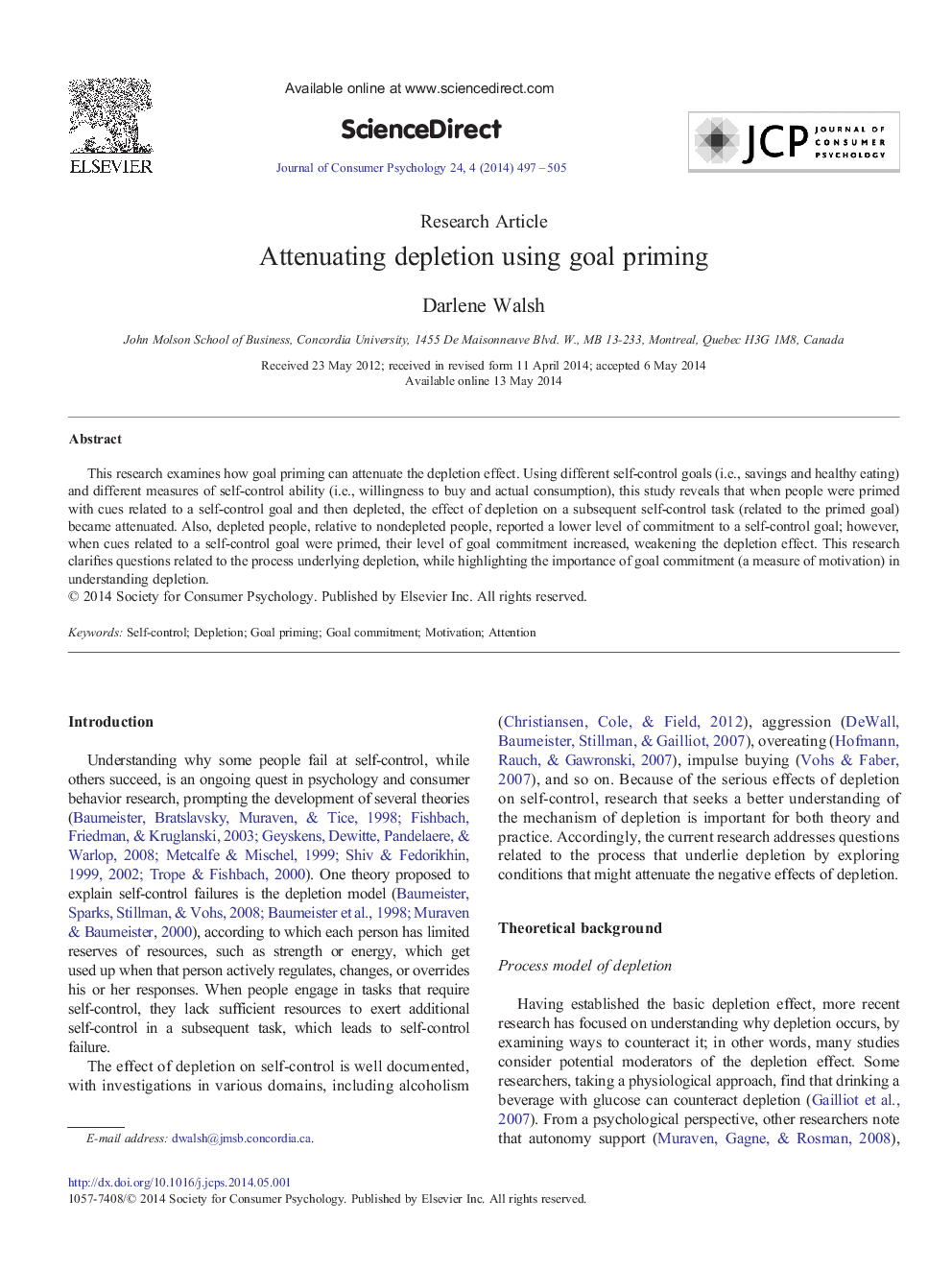| Article ID | Journal | Published Year | Pages | File Type |
|---|---|---|---|---|
| 882118 | Journal of Consumer Psychology | 2014 | 9 Pages |
This research examines how goal priming can attenuate the depletion effect. Using different self-control goals (i.e., savings and healthy eating) and different measures of self-control ability (i.e., willingness to buy and actual consumption), this study reveals that when people were primed with cues related to a self-control goal and then depleted, the effect of depletion on a subsequent self-control task (related to the primed goal) became attenuated. Also, depleted people, relative to nondepleted people, reported a lower level of commitment to a self-control goal; however, when cues related to a self-control goal were primed, their level of goal commitment increased, weakening the depletion effect. This research clarifies questions related to the process underlying depletion, while highlighting the importance of goal commitment (a measure of motivation) in understanding depletion.
